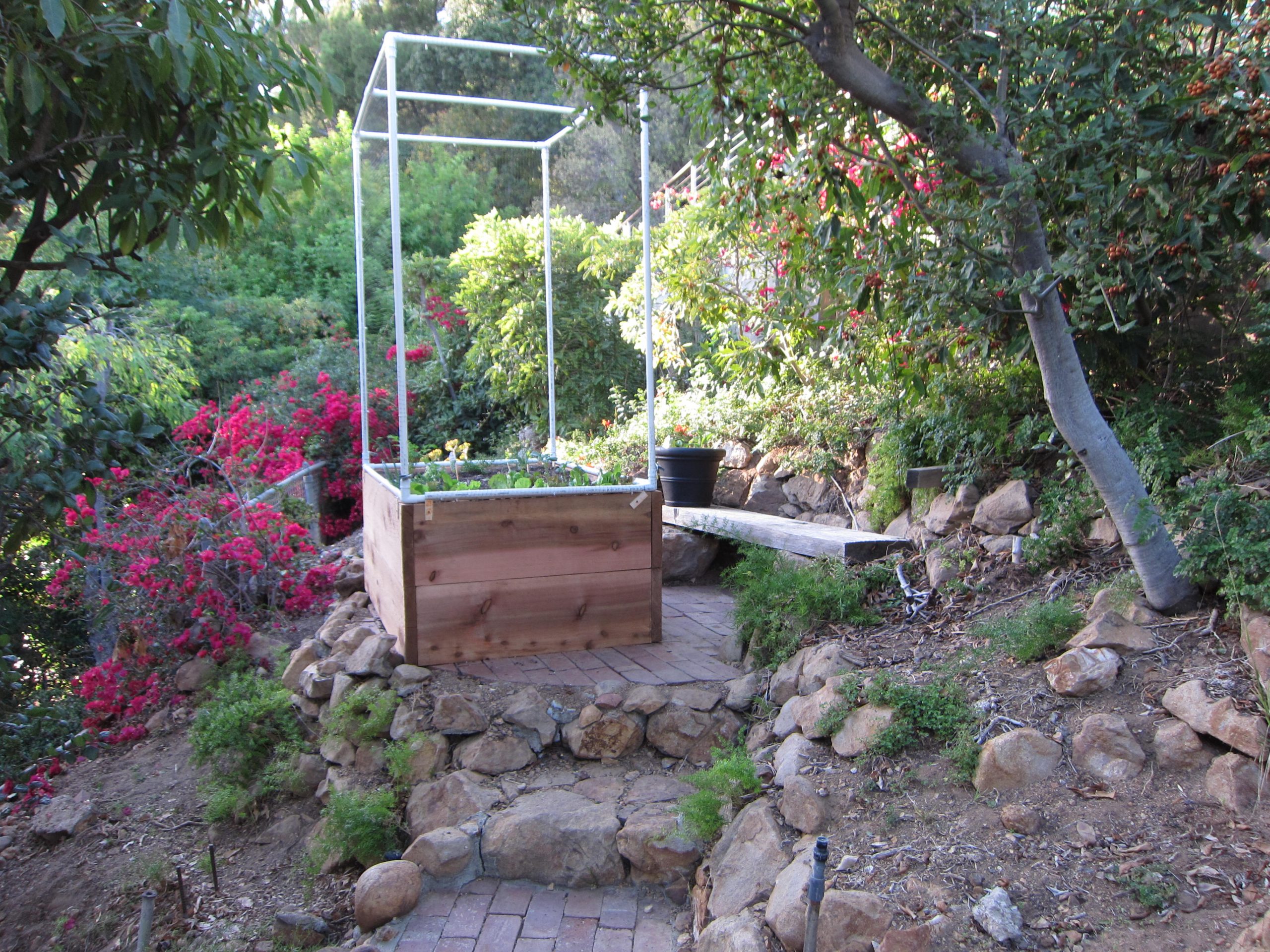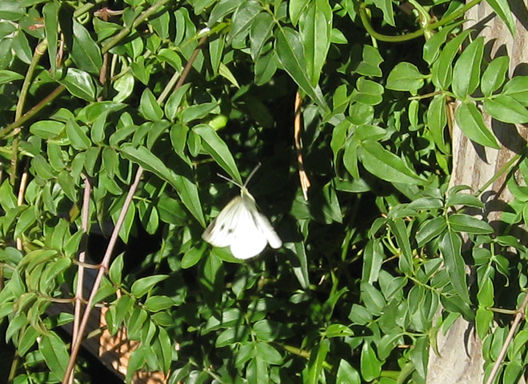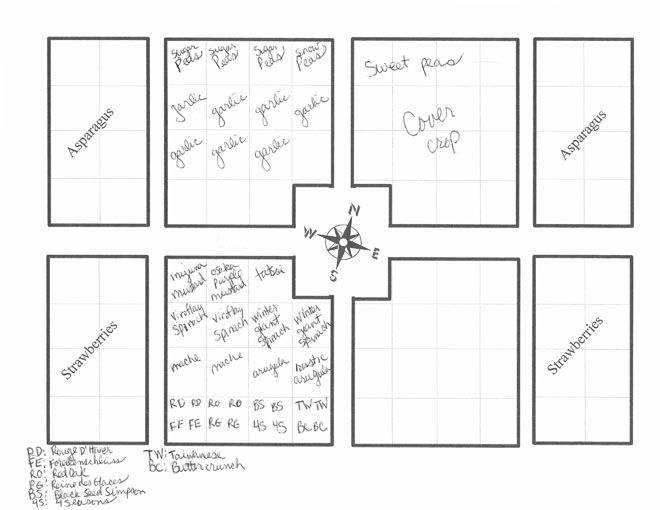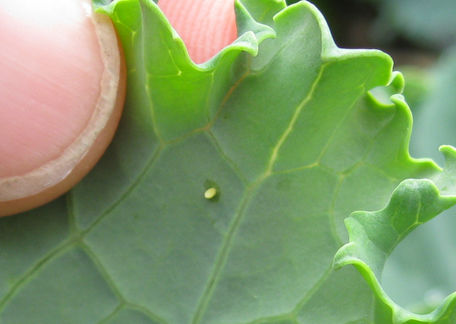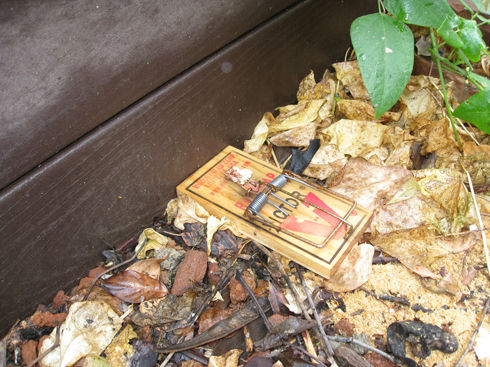Design: A Cozy Caged Garden
While Los Angeles may be a concrete jungle, we still have wild animals lurking about the garden. Our most recent garden installation was designed to protect new seedlings from wandering critters on the canyon slope. It's a starter garden, this 3x5 foot raised bed. Not much design involved, except that we had to make it fit on top of an existing brick patio barely bigger than that. We decided to move the bench back a foot, closer to the rock…

